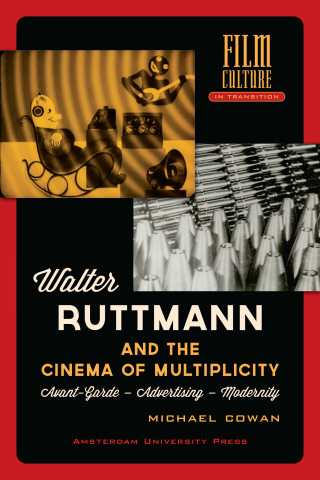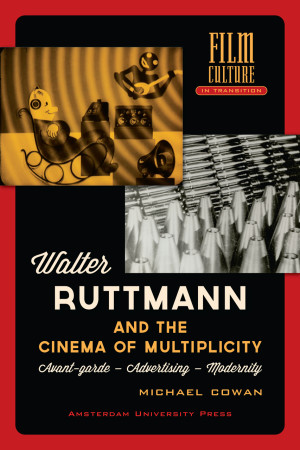"A veritable hothouse of modernity, the singular film career of Walter Ruttmann spans advertising films, Weimar era experiments, big city symphonies, industrial and medical shorts, Kulturfilme, and Nazi propaganda. Cowan's impressive book is keenly attentive to historical materials, ever acute in its close analyses, and extraordinarily mindful of this cinema's pertinence for current debates about media culture and mass society. Indeed, this exemplary study rises admirably and persuasively to the many challenges posed by Ruttmann's imposing body of work." -- Eric Rentschler, Harvard University
"In the first book on Walter Ruttmann in English, Michael Cowan tackles this major but apparently paradoxical filmmaker: an innovator of abstract animation who also directed one the most influential documentaries; leader of Weimar avant-garde film culture who ended up making propaganda films for the Nazis. With critical insight and a firm sense of cultural history, Cowan not only details Ruttmann's complex career, but uncovers its complex dynamics by providing a new account of both twenties experimental film and Third Reich cinema." -- Tom Gunning, University of Chicago
'[An] extremely well-written book and inspiring analysis of Ruttmann's work.' - Eva Hielscher, Ghent University, Historical Journal of Film, Radio and Television 35 (2), June 2015

